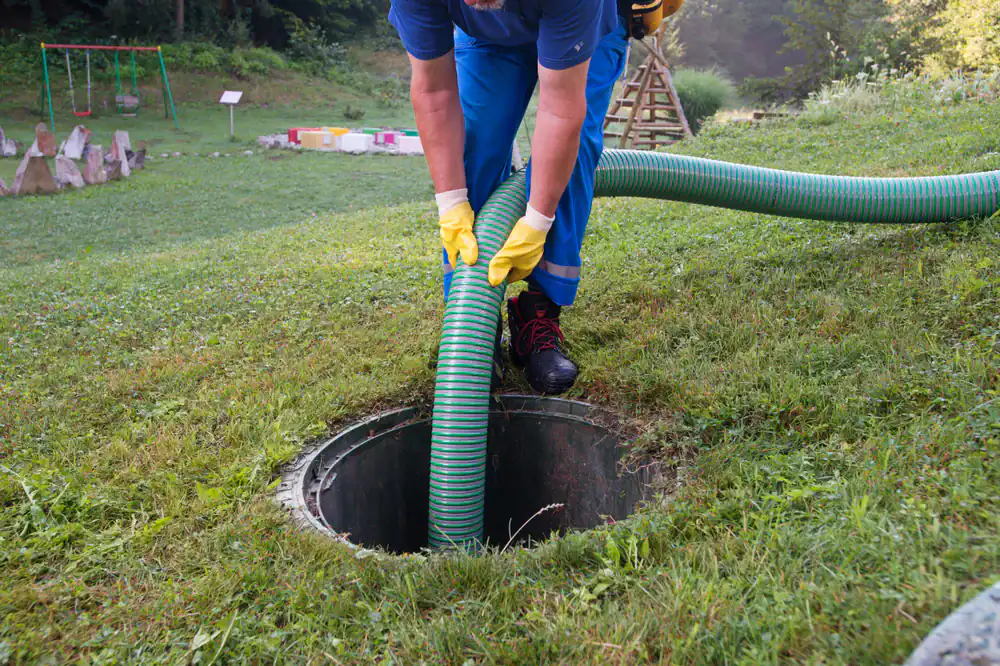
Our Reviews
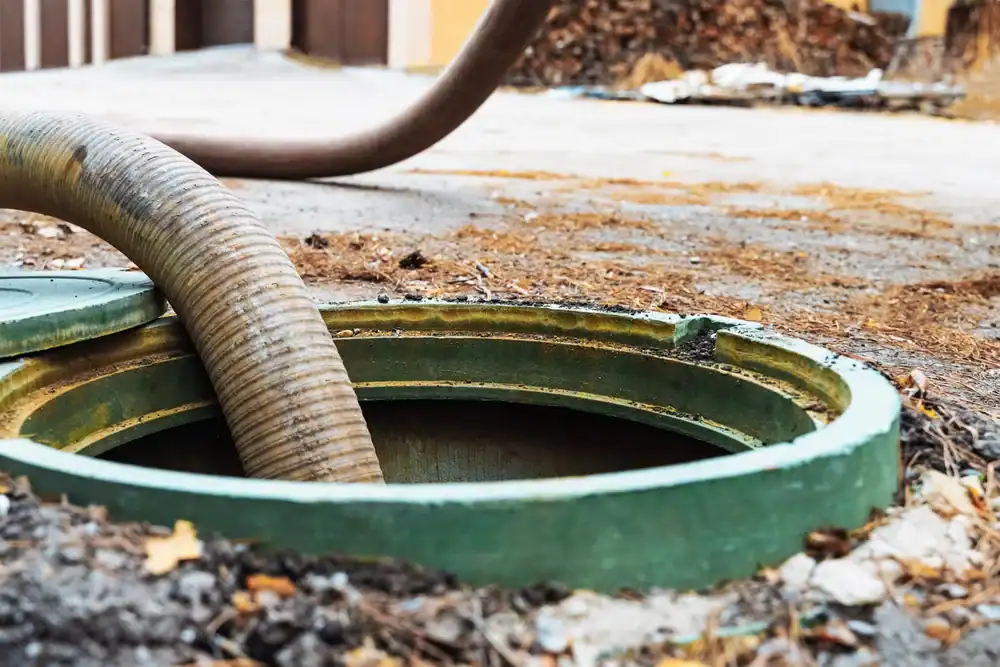
When your septic tank is properly maintained, you sleep better at night. No unexpected backups flooding your basement. No emergency calls at 2 AM because waste is backing up into your home. No scrambling to find thousands of dollars for a complete system replacement.
Regular septic tank cleaning means your system operates efficiently for decades, not years. Your property stays protected from contamination. Your family stays safe from health hazards that come with septic failures.
You get predictable maintenance costs instead of surprise emergency bills. Your system processes waste properly, preventing groundwater contamination and keeping your neighborhood safe. Most importantly, you avoid the nightmare scenario every septic owner fears—raw sewage backing up into your living space.
We at All Rooter Hydro Jetting Experts Inc. have been serving Greater Grand Crossing and the broader Chicago area with reliable septic and plumbing services. We’re licensed, bonded, and insured—not just because it’s required, but because your property deserves that level of protection.
Chicago’s unique soil conditions and older infrastructure create specific challenges for septic systems. Clay soil doesn’t drain like it should. Freezing temperatures can stress septic lines. We’ve seen every scenario this city can throw at a septic system.
Our technicians understand how Greater Grand Crossing properties are built and how septic systems age in this climate. When you call us, you’re getting local expertise that comes from years of solving septic problems right here in your neighborhood.
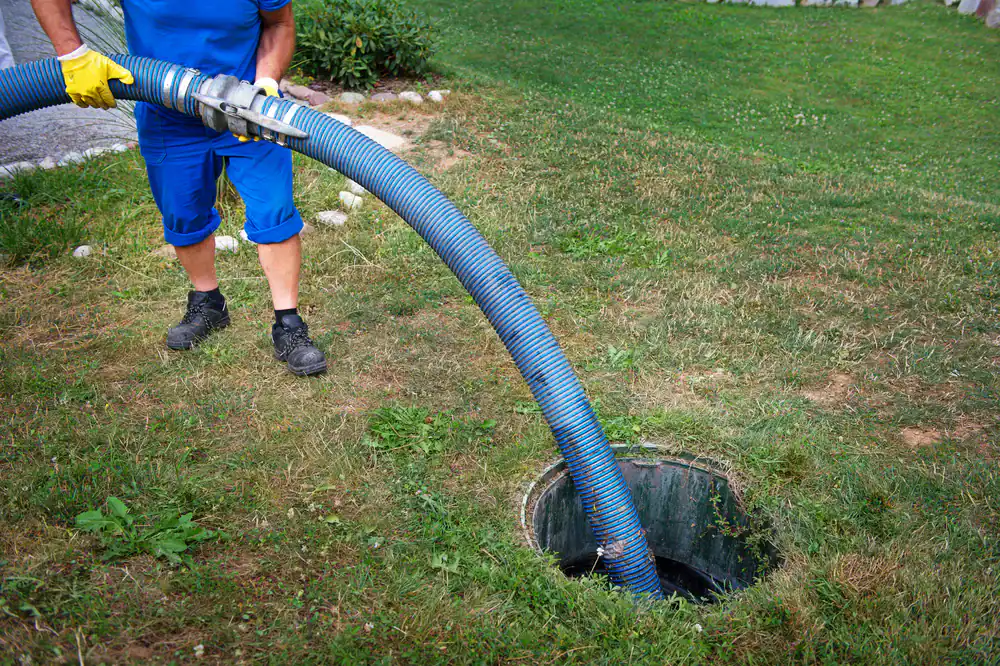
First, we locate and uncover your septic tank access ports. Our technician inspects the tank to assess sludge levels and check for any obvious damage or concerns. This tells us exactly what your system needs.
Next, we use professional pumping equipment to remove accumulated sludge and scum from all compartments of your tank. We don’t just pump out liquid—we remove the solid waste buildup that clogs your system and causes problems.
During the cleaning process, we inspect your tank’s structure, baffles, and inlet/outlet pipes for damage. If we spot potential issues, we’ll explain what we found and what it means for your system’s future performance. You get a clean tank and a clear picture of your system’s condition.
After pumping, we replace access covers and restore your property to its original condition. We provide documentation of the service and recommendations for your next maintenance schedule based on your household size and usage patterns.
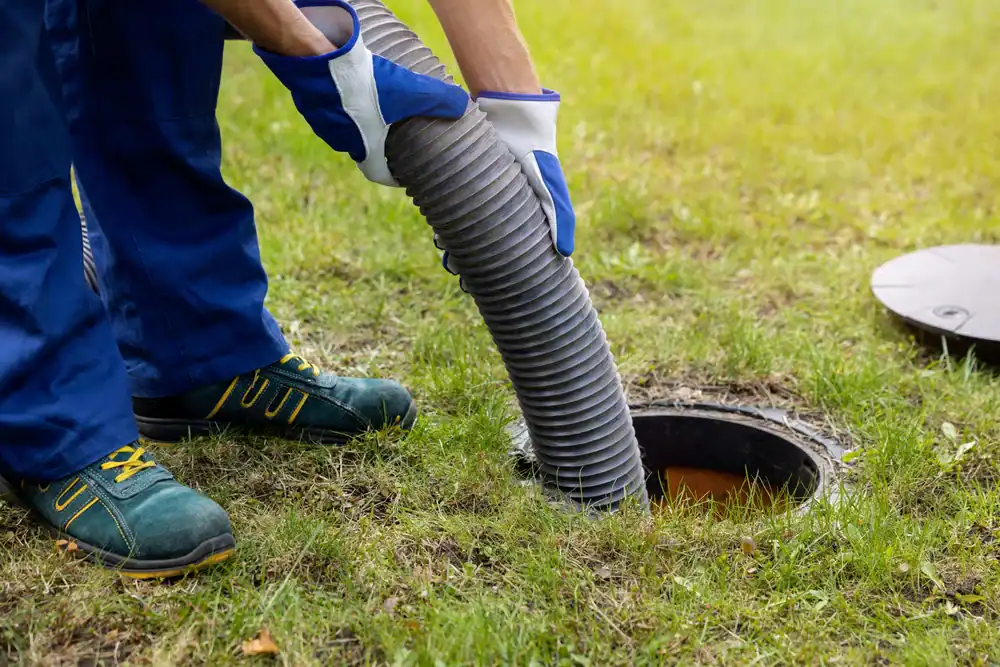
Ready to get started?
Your septic tank cleaning includes complete sludge and scum removal from all tank compartments, thorough inspection of tank structure and components, and professional assessment of your system’s overall condition. We document everything so you have records for future reference.
Greater Grand Crossing properties often deal with clay soil that doesn’t drain efficiently, putting extra stress on septic systems. Our service accounts for these local conditions. We check for signs of hydraulic overload and provide specific recommendations for your property’s soil and drainage characteristics.
We also inspect your tank’s baffles, which are critical for proper waste separation but often overlooked by other companies. Damaged baffles can cause premature system failure, so we make sure yours are functioning correctly. You get comprehensive service that addresses the real factors affecting septic system performance in this area.
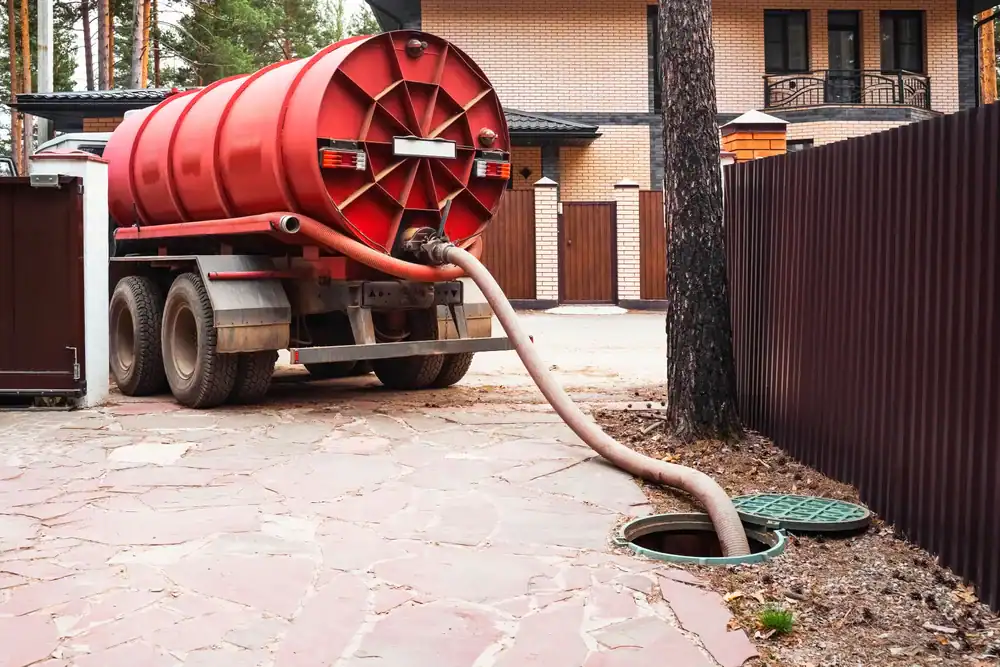
Most residential septic tanks need cleaning every 3-5 years, but your specific schedule depends on household size, tank size, and usage patterns. A family of four with a 1,000-gallon tank typically needs service every 3-4 years.
Chicago’s clay soil conditions can affect this timeline. Clay doesn’t absorb effluent as efficiently as sandy soil, which means your tank may fill faster than expected. Heavy water usage from large families or frequent guests also accelerates the buildup of sludge.
The best approach is having your tank inspected annually and pumped when sludge levels reach about one-third of the tank’s capacity. This prevents solids from reaching your drain field and causing expensive damage to your entire system.
Slow drains throughout your home, especially when multiple fixtures are affected simultaneously, often indicate a full septic tank. Gurgling sounds from drains or toilets that won’t flush properly are also warning signs that shouldn’t be ignored.
Bad smells around your septic tank area or inside your home signal that waste isn’t processing correctly. Wet spots or unusually green grass over your drain field can mean effluent is backing up because your tank is too full to function properly.
If you’re experiencing any of these symptoms, your septic system needs immediate attention. Waiting can lead to complete system failure, sewage backups into your home, and thousands of dollars in emergency repairs that could have been prevented with timely cleaning.
Professional septic tank cleaning in the Chicago area typically ranges from $300-600 for standard residential tanks, depending on tank size, accessibility, and current condition. Larger tanks or those requiring special equipment may cost more.
The actual cost depends on several factors: your tank’s size and depth, how difficult it is to access, and how full it is when we arrive. Tanks that haven’t been maintained regularly take longer to clean and may require additional services.
Emergency septic pumping costs significantly more than scheduled maintenance—often 50-100% higher than regular service rates. This is why we recommend staying on a regular maintenance schedule. The cost of prevention is always less than the cost of emergency repairs and property damage.
Septic tank pumping requires specialized equipment, proper disposal methods, and knowledge of safety procedures that most homeowners don’t have access to. Professional pumping trucks can remove all waste efficiently, while DIY attempts often leave significant sludge behind.
More importantly, septic tanks contain dangerous gases like methane and hydrogen sulfide that can be fatal in enclosed spaces. Professional technicians have safety equipment and training to work safely around these hazards. Attempting this work yourself puts you at serious risk.
There’s also the disposal issue—septic waste must be disposed of at approved facilities according to environmental regulations. Improper disposal can result in hefty fines and environmental damage. Professional service includes proper waste disposal as part of the service cost.
Without regular cleaning, sludge builds up until it blocks your tank’s outlet pipe, causing raw sewage to back up into your home through drains and toilets. This creates serious health hazards and can cause thousands of dollars in property damage.
The accumulated sludge eventually flows into your drain field, clogging the soil and preventing proper filtration. Once your drain field fails, you’re looking at a complete system replacement that can cost $15,000-30,000 or more, depending on your property’s conditions.
Beyond the financial cost, a failed septic system can contaminate groundwater and create environmental violations that result in fines and legal issues. Regular cleaning every 3-5 years prevents these catastrophic failures and protects both your property and the environment.
Yes, we provide 24/7 emergency septic pumping throughout Greater Grand Crossing and the broader Chicago area. Septic emergencies don’t wait for business hours, and neither do we. When sewage is backing up into your home, you need immediate response.
Our emergency service includes rapid response times, typically within 2-4 hours of your call depending on weather conditions and current demand. We carry emergency equipment and have experienced technicians on call specifically for urgent septic situations.
Emergency service does cost more than scheduled maintenance, but we provide upfront pricing so you know exactly what to expect. We also offer guidance on immediate steps you can take while waiting for our arrival to minimize property damage and health risks.